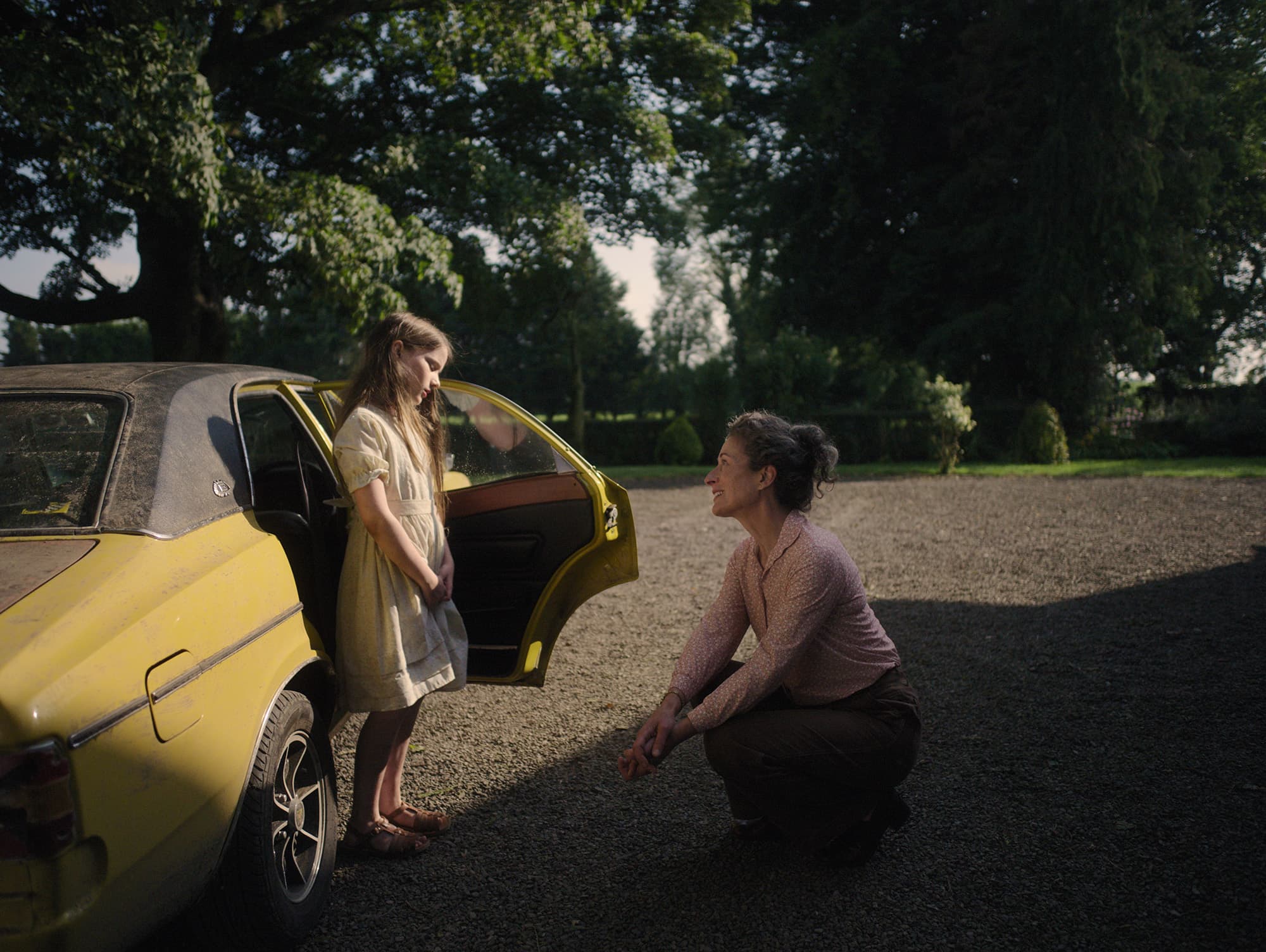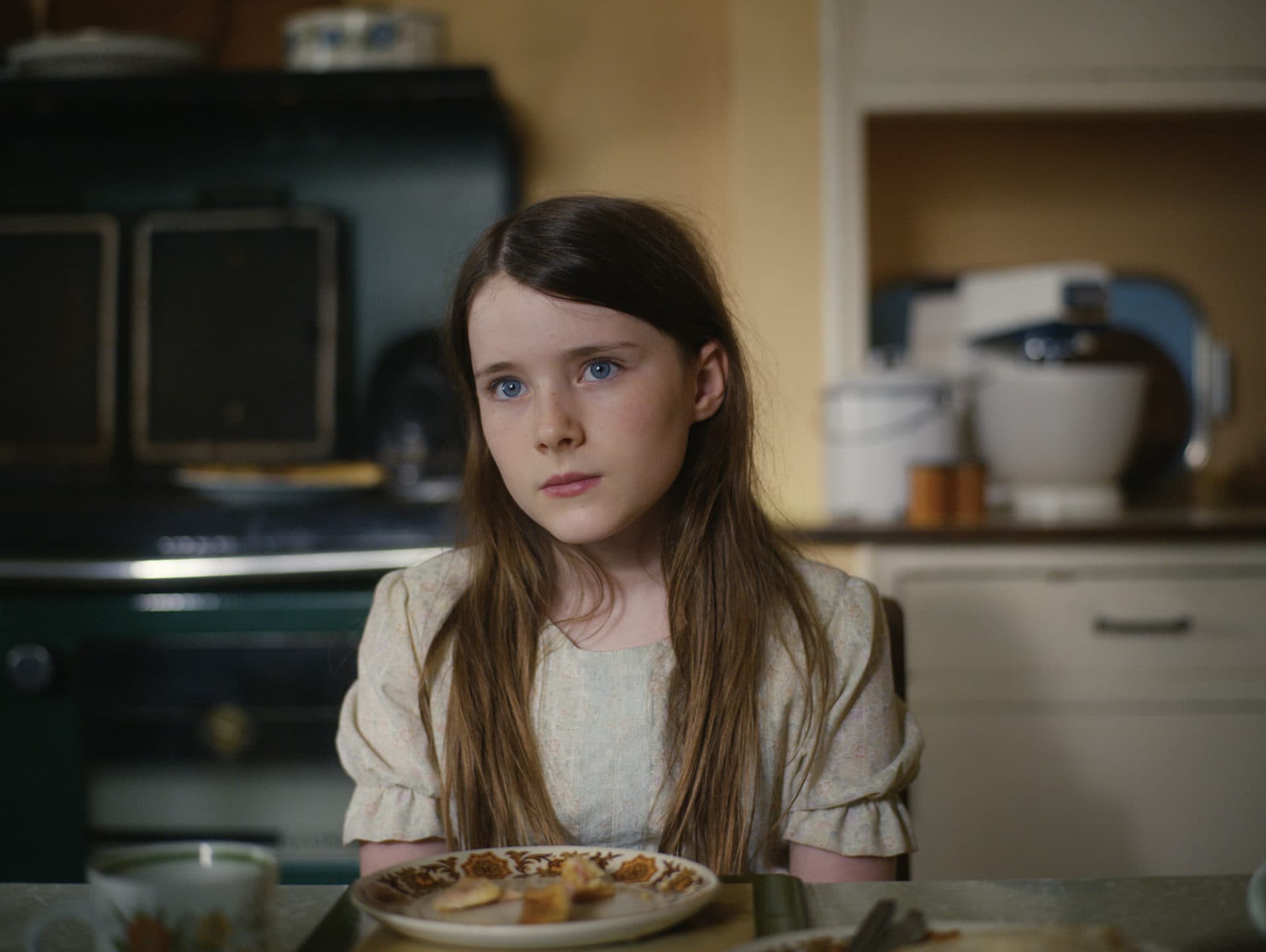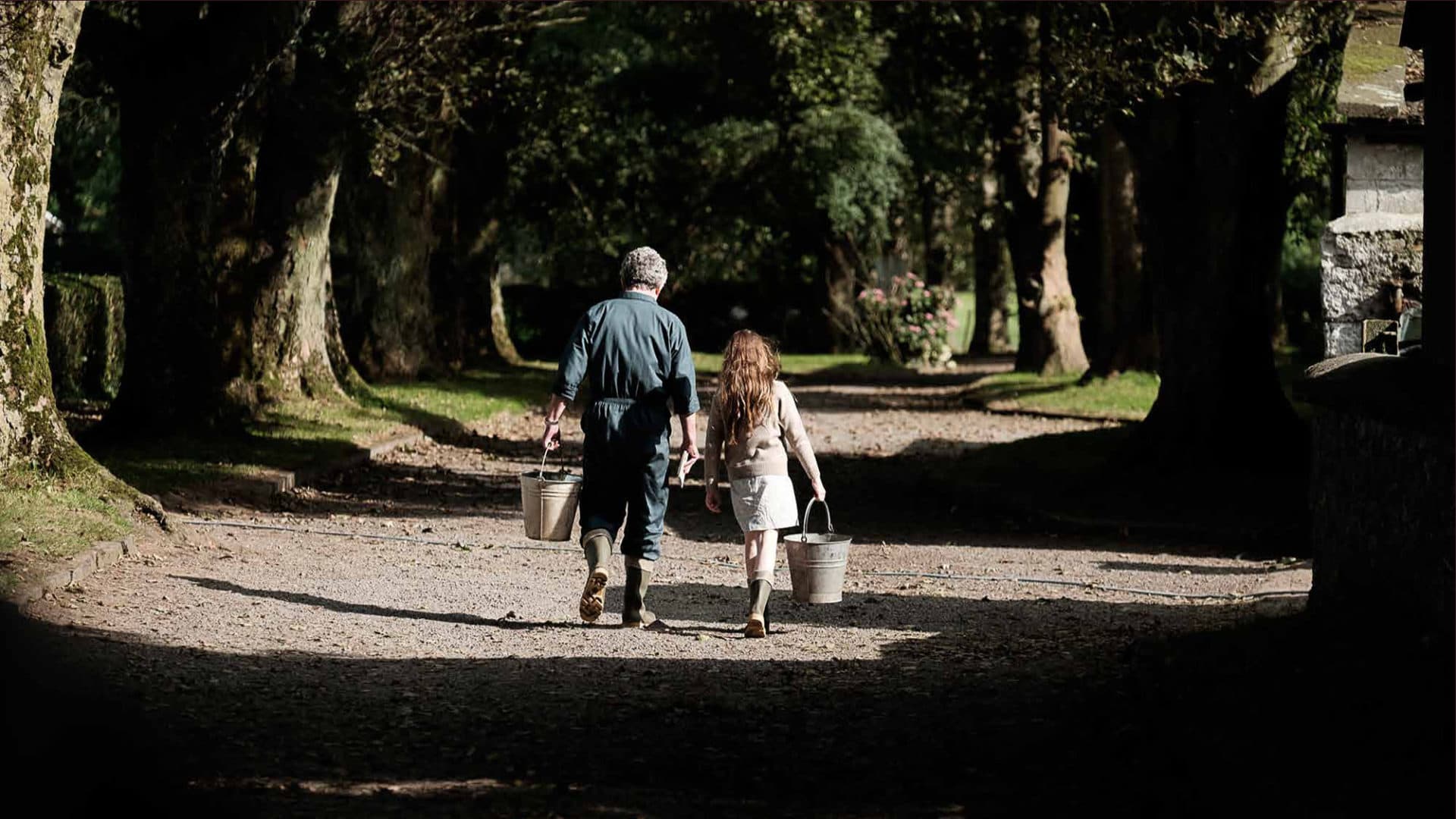Advertisement
Review
'The Quiet Girl' is a deceptively simple story about unexpected kindness

Roger Ebert liked to say that it was never the sad moments in movies that moved him the most, but rather when characters showed each other unexpected kindnesses. I’m wired much the same way. Nothing gets these creaky old tear ducts flowing faster than acts of compassion, which could explain why “The Quiet Girl” reduced this critic to a whimpering puddle. Adapted by writer-director Colm Bairéad from Claire Keegan’s 2010 novella “Foster,” it’s the deceptively simple story of a neglected 9-year-old girl from a troubled family in rural Ireland who is sent to live with distant relatives for the summer. Her name is Cáit, and, as one might surmise from the title, she doesn’t talk much. But as played by the inwardly expressive Catherine Clinch, Cáit doesn’t really need to say anything at all. She’s one of those kids with eyes at least a thousand years old, betraying a heaviness of heart that transcends age.
It’s through those sad eyes that we see the movie, glimpsed in half-understood fragments of an adult world Cáit can’t quite comprehend yet. Bairéad keeps the camera low to the ground or banished to the backseat of the car, focusing on the kind of stray, ephemeral details that burn into a child’s memory. It quickly becomes clear to us that Cáit’s family is not doing well. Theirs is a crowded house of bare cupboards, dirty knees and threadbare clothes, with siblings taunting their sensitive little sister and an aloof father in the other room fighting off another monstrous hangover. He’s a piece of work, her old man, a degenerate gambler who thinks nothing of giving his mistress a lift while his kid’s in the car. We watch their cryptic conversation the way Cáit does, her gaze lingering on this mysterious woman’s flashy earrings and the automobile’s overflowing ashtray.

Cáit’s mother is pregnant again, and it’s decided that our little girl will spend the summer of 1981 with mum’s cousins on a dairy farm three hours away. Cáit’s never heard a word about these people, Eibhlín (Carrie Crowley) and Seán (Andrew Bennett), so however friendly the old folks may seem, she’s still understandably apprehensive about being sent off to live with strangers. Meanwhile, her deadbeat dad is so relieved to be rid of his daughter that he speeds off with her suitcase still in the car.
It's okay, Eibhlín and Seán have a wardrobe full of clothes for her to wear. Cáit doesn’t notice that they’re made for a little boy. We do, just as we also notice the paintings of toy trains on the wallpaper in the spare room that just so happens to already have a child-sized bed. Clearly, something very sad happened here some time ago, and it is with great patience that Cáit and her temporary caregivers will slowly warm up to each other enough to reveal their secrets over the course of this summer.
It's a delicate film of small gestures and the slow building of trust. Crowley’s nurturing, achingly lovely Eibhlín is always reaching out to the sad, withdrawn little girl in need, while Bennett’s Seán is at first quite brusque and closed off, as if hesitant to allow another child into his orbit for fear of what might happen again. For the movie’s early scenes he’s photographed either at a distance or facing away from the camera, then at three-quarters profile and so forth, the actor’s face becoming more visible as the character gradually lets his guard down. This is the kind of smart, visual storytelling that –even if you don’t notice it—affects the audience on a subconscious level.

The title of “The Quiet Girl” is an obvious riff on John Ford’s St. Patrick’s day perennial “The Quiet Man,” an irresistible film full of blarney and bluster featuring a John Wayne bar brawl that famously lasts for an entire reel. This movie is not quite a rebuke, but at least an inversion of such bravado, offering an alternate vision of heroism steeped in kindness and attention, virtues that stand in stark contrast to Cáit’s father and the faltering machismo that's failed his family. Bairéad’s film understands how tenderness and vulnerability require great bravery, especially for folks as emotionally constipated as those of us descended from the Emerald Isle.
We Irish can also be a bit florid, and there are moments when Bairéad comes perilously close to snapping his film’s gossamer spell. The cool precision of Kate McCullough’s cinematography is ill-served by a couple of slips into slow-motion that gild the lyrical lily. Most of the movie is so eloquently understated that even the slightest signs of plot rigging can feel like the filmmaker is pushing a little too hard. “The Quiet Girl” speaks loudest when it doesn’t raise its voice. Or, as Seán says in defense of the title character, “She says as much as she needs to say.”
The Independent Film Festival Boston and The Irish Film Festival Boston are co-presenting an advance screening of “The Quiet Girl” with writer-director Colm Bairéad in attendance at the Coolidge Corner Theatre on Wednesday, March 1. The film’s regular engagement begins at Kendall Square Cinema and Coolidge Corner Theatre on Friday, March 3.
